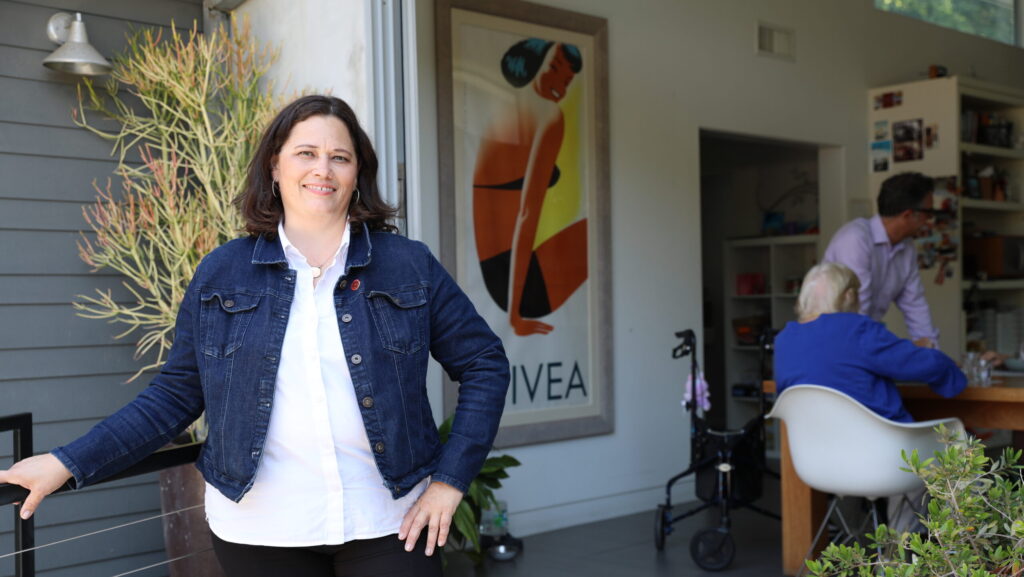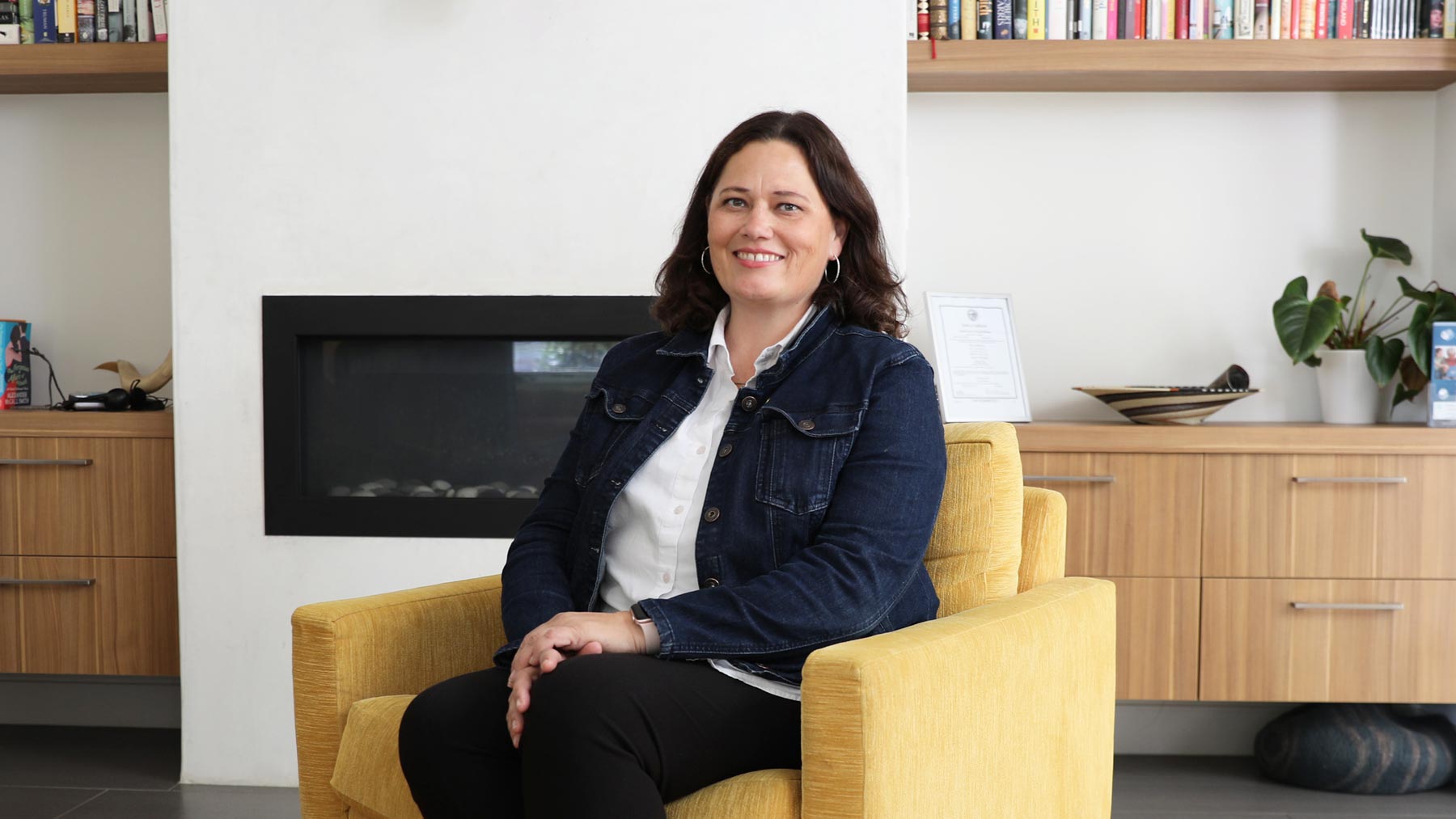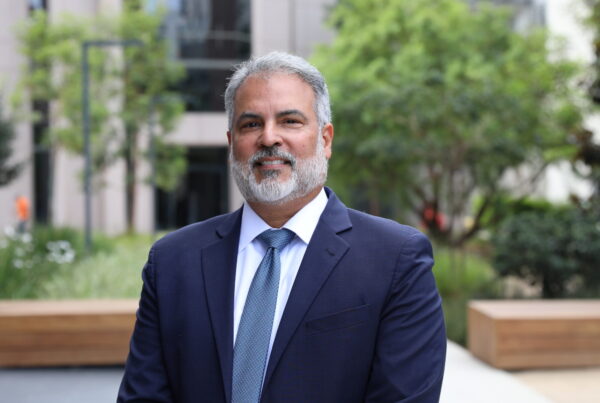Lesley Holmes is a gerontologist, chef and mom. After a winding career path, she opened Indalo Homes — a board and care home in Santa Monica, California.
Board and care homes are licensed residential assisted living facilities, typically with six beds. “I often feel like they’re dark and depressing places,” Holmes says. “My vision was to create a positive environment, full of light and laughter.”
Making a vision a reality
The idea to open Indalo Homes came to Holmes by chance. She had a friend whose wife had suffered a stroke at age 46 and needed round-the-clock care. With a background in gerontology and assisted living, Holmes understood the financial aspects of caring for someone for the rest of their life.
“My friend lived in a beautiful home his wife designed,” she says. “With a few modifications, I thought it would make a perfect board and care residence for her and five residents. And it would make enough income so he could care for his wife at home long-term.”
Together, they founded Indalo Homes. As the administrator, Holmes oversaw the renovations to meet licensing requirements and opened for business in June 2024.

Lesley Holmes photographed in the courtyard of Indalo Homes.
From Lord Byron to gerontology
Holmes’ interest in gerontology also occurred by chance. She started at USC in 1991 as an English major hoping to write children’s books. After a difference of opinion with a professor over Lord Byron (Holmes wasn’t a fan), she dropped the class. As a replacement, she picked up Physiology of Aging in the USC Leonard Davis School of Gerontology.
“My great-grandmother lived with my family until I was 16,” says Holmes. “She helped take care of us, and we took care of her after she broke her hip. The gerontology class helped me understand this experience.”
Wanting to learn everything she could about aging, Holmes switched her major to gerontology.
Appreciating life differently
Class sizes were small at the time, and Holmes’ cohort of eight students was tight-knit. “We worked closely with the professors in a field of study we all knew would become more and more relevant with each generation of students. It felt like we were doing something important,” she says.
Three decades later, Holmes remembers two professors who helped her see life differently:
- Jon Pynoos, PhD: Pynoos taught a class on the aging environment and how building design helps people safely age in place. “I wondered whether there was something we could have done to prevent my great-grandmother’s hip injury,” says Holmes.
- Gerald Larue: Larue taught death and dying. It was an intimate class where he and his students shared their personal views and experiences. “It was the best way to learn about a subject that no one wants to talk about,” she says. “I reflect on those lessons often and incorporate them into my daily life and work.”
Finding purpose in work and family
Holmes’ first job after graduating was as an administrator of an assisted living community. But as a new mom, she struggled to balance the job’s demands.
So, she shifted gears, managing her family’s gourmet food store and restaurant. As she raised her kids, her work took different directions, but aging, food and children remained consistent themes.
During that time, Holmes directed several nonprofit organizations. Some of her accomplishments included:
- Producing articles that shed light on ageism in the media. One of her articles featured a USC Leonard Davis School student paired with a seasoned reporter. They each gave different perspectives on how a television series portrayed older adults.
- Running a book club for older adults and middle school students. “I saw the benefits of intergenerational communication with emotional benefits to both groups,” she says.
- Providing music therapy to children with chronic health conditions.
Promoting healthy aging through food
After Holmes’ kids left for college, she decided to pursue chef certification at the Culinary Institute of America. “At USC Leonard Davis School, I studied how nutrition and healthy eating can help you age successfully, extend your lifespan and just feel better. But I wanted to know the ‘why’ behind it.”
Chef training has been pivotal for Holmes in setting up a culinary program at Indalo Homes. She serves primarily a Mediterranean diet. This healthy approach has reduced residents’ need for antacid medications and laxatives and given them more energy.
Creating a special community
Indalo Homes doesn’t feel at all like an assisted living facility, says Holmes. What makes it different?
- Staff: They have 10 staff members, many of them in their 20s. The caregivers are superheroes, says Holmes, bringing youth and vitality to the residents.
- Activities: The residents participate in daily exercises in the courtyard, morning mindfulness sessions and a range of planned events. Holmes recently invited her daughter’s jazz duo to perform for the residents. “It was meaningful for the residents and the young people,” she says.
- Families: Families are very involved in making sure their loved one gets the medical care they need. They are another source of positive energy at the house.
- Environment: Indalo Homes is light and modern with many conveniences. “We installed the ramp in the back, so it’s not the first thing you see when visiting,” says Holmes.
Giving older adults the care they deserve
Looking toward the future, Holmes sees many opportunities. She’d consider replicating the process she used to start Indalo Homes to open another board and care, given the right property.
Incorporating the next generation into this work is also important for Holmes. “I’d like to serve as an apprentice site for students,” she says. “Young people can learn from us, but they have fresh ideas and lessons to teach us too.”
Wherever Holmes’ journey takes her, she wants to continue making a difference for older adults. “Because of my gerontology education, I can see that I have a lot of life left and joy to give. I also see that in my residents,” she says.
To learn more about undergraduate and graduate degree programs at the USC Leonard Davis School of Gerontology, call us at (213) 740-5156.





